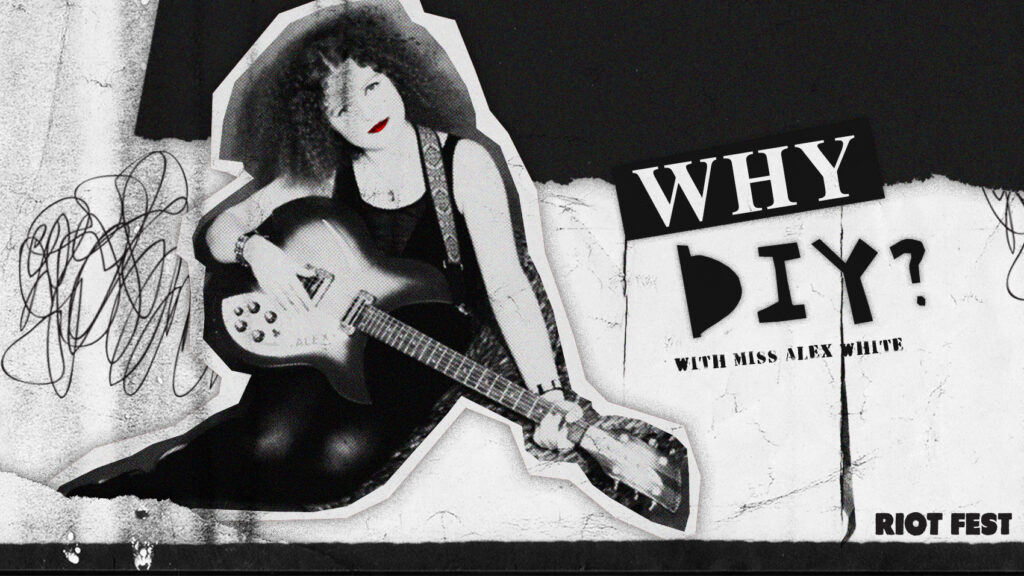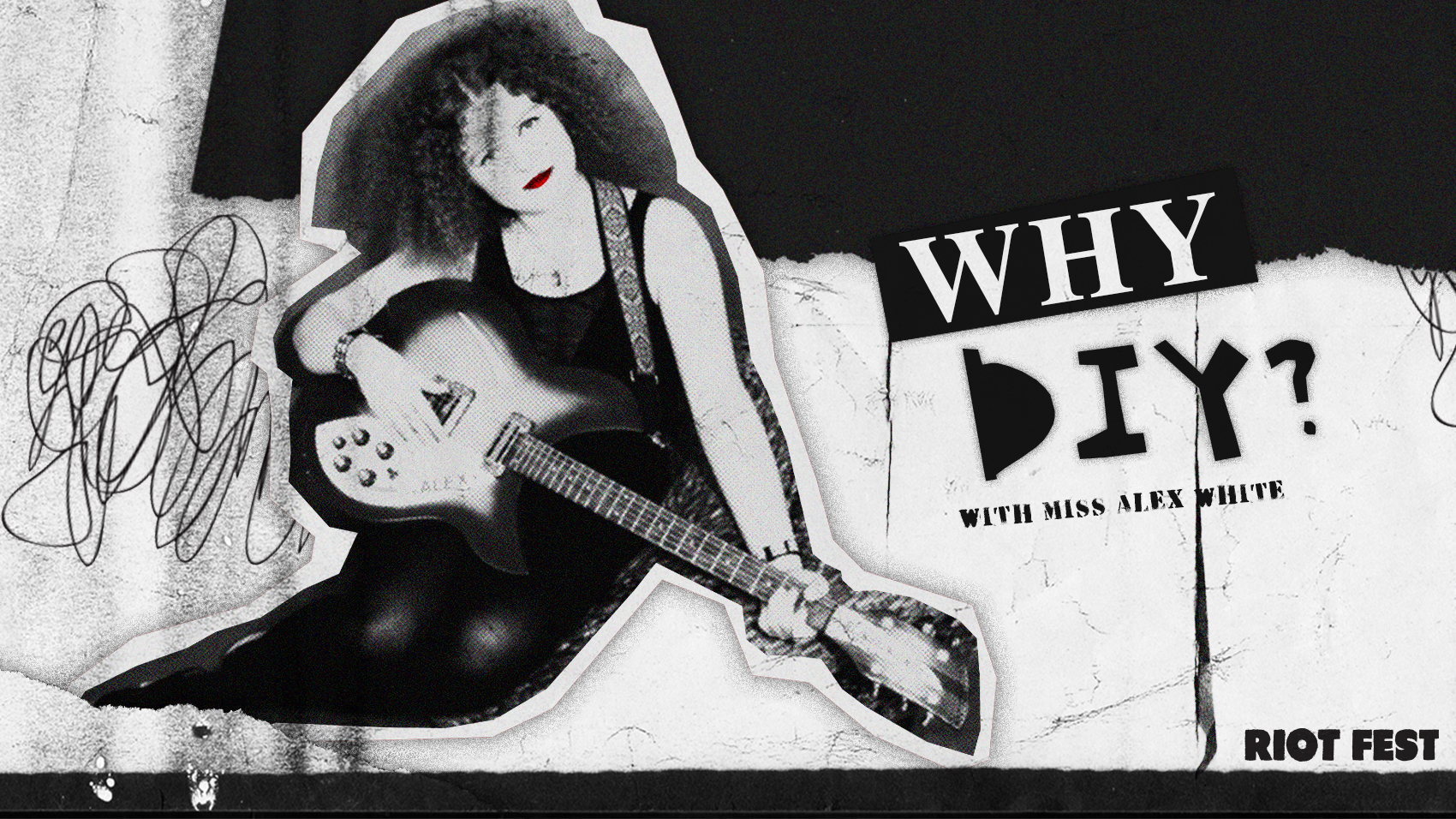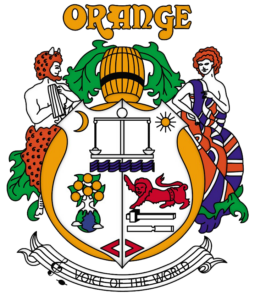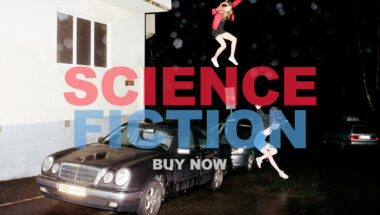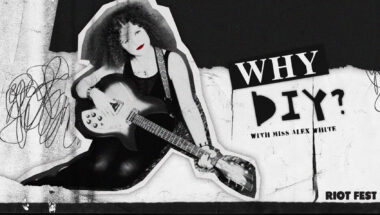Over recent decades, companies have finally recognized the value of music and how it shapes people’s lifestyles. Your preferred genre of music most likely influenced the type of deodorant you used this morning (or lack thereof) and what type of beverage you ordered last night.
Remember how a local business would donate jerseys to your elementary school sports team back in the day? Flash-forward to adulthood, where money is scarce for DIY musicians, and companies’ surplus inventory has the potential to solve your deficiencies. My band, White Mystery, has procured support from many brands over the last decade, and the process began with vision, then diligence, and follow-through.
You should approach sponsorship as a mutually beneficial exchange between two entities. In other words, brainstorm what your band does best as the unique value proposition for bartering with a potential sponsor. For instance, how great is your social media presence, blog, or newsletter? What about your ability to draw crowds, plan events, or make videos? For White Mystery TV, a live-streamed program that we launched recently, sponsors were plugged with commercials during the stream, we tweeted pictures of their products on the set, included companies’ marketing materials in swag bags for guests, and linked to each company in a press release that garnered a write-up in High Times, among other publications.
(White Mystery drummer/brother) Francis and I invested in the hardware and infrastructure for the broadcast, while Chubby Wiener hot dogs, New Belgium Brewing, Deep Eddy Vodka, Soothsayer Hot Sauce, Do312 and Dante’s Pizza provided complimentary hospitality to the guests. The generosity of these local and nationwide sponsors created a happy environment where creative people were fed and supported to do what they do best—entertain a hungry audience.
As you walk through the steps below, think about your strengths and how the organizations you target can benefit from your skills.
While registered 501c-3 charities accept donations, your role as a DIY band is to develop an actual working relationship with sponsors that cross-benefits you both.
Here’s how White Mystery has procured sponsorships:
1. IDENTIFY YOUR ISSUE
Do you want to offer a happy hour at your next concert to encourage early birds? Are you trying to acquire enough guitar strings to sustain your band through the next tour? What about gift certificates to feed the musicians and keep your costs low? Are you about to perform on the local TV station and need a fresh outfit for the appearance? What about discounts on the hotel rooms you’re about to book?
In my experience, it’s a lot easier to ask a brand for products instead cash. Brainstorm with your band on how sponsorships can help lower your costs, increase your quality of life, and thusly improve your delivery of music. Your goal here is to decrease issues and create more time for writing your own press releases, booking your own shows, and making kick ass records.
2. FIND THE RIGHT BRANDS
Research brands you like that could solve your issue and create a mutually beneficial sponsorship opportunity.
When my vintage Music Man amplifier malfunctioned on stage at a show, I needed a new, powerful amp fast. I was immediately attracted to Orange Amplification because in addition to making great-sounding, solid amps, their company crest features two redheads, and my band is composed of two gingers. Orange features a lot of hard rock bands, which White Mystery is as well, so it all made perfect sense to contact a brand like Orange to solve my issue.
With this in mind, explore different brands that may be the right fit for you. Chances are, the products you desire market to you already, and your propensity to act an ambassador for that organization is more likely. With that in mind, research brands you like and respect for sponsorship because your representation of those products will be natural.
Consider the politics of the brands you research, such as where the products are manufactured, how they treat employees, and so on. Your future sponsorship deal closely associates you with this brand, so it’s important to make sure that your values are aligned.
Also, think locally. While contacting Red Bull on a nationwide scale may seem insurmountable, research where their closest music department office is located. Many beverage brands, like Pabst Blue Ribbon, employ field marketers in major cities that might be sitting on the barstool next to you at your favorite rock club. In smaller markets, think about cool boutiques or shops nearby that might want to support your band as best they can.
3. PITCH
Contact the company with your issue, how their brand can solve it, and in return, how your b(r)and can enhance their product or service.
Your pitch is three lines, which opens with a “you”-oriented statement to the reader. A second line explains your band’s value proposition. Then conclude with a “who,” “what,” “when,” “where,” or “why” question about how their brand can potentially solve your issue. Attach your most recent press release. If you don’t get a response after 7-10 days, follow up to ensure your email was received.
When I pitched to Orange through their contact page, White Mystery was still a pretty young band with just a few hundred followers on social media. At the same time, their A&R representative saw that our upcoming tour schedule was jam packed for the whole year, which would potentially put Orange in front of a lot of eyes at concerts nationwide. This prospect, along with the right genre fit and redhead tie-in, created the perfect storm for a relationship that’s lasted a decade. In exchange, White Mystery plugs Orange Amps in newsletters, praises the company on social media, makes cool videos for the brand, hosts Instagram take-overs, and rocks audiences worldwide with their equipment.
Some companies actually have organized formal sponsorship programs that can guide your pitch, like Pabst’s PBR Music Society and Taco Bell’s Feed the Beat program, which provides gift cards to young, hungry artists on the road. Other companies, like GHS strings, are smaller, independent companies that you’ll need to email on your own accord. Keep your pitches short and sweet, along with pertinent links to your band.
4. WRITTEN TERMS
When your pitch is accepted by a brand, it is important to formally state the sponsorship terms for future reference by both parties. Some sponsors may already have a document in place that you sign, and others may ask that you organize a simple deal memo. Here is an example template to guide your agreement of value exchange to instate a sponsorship:
[$XXX Credit] or complimentary [Product Names] from [Sponsor Company Name] for [Your Name & Band Name] in exchange for the following, executed by [Date]:
• LOGO: [Band] to promote [Sponsor] on tour poster
• NEWSLETTER PROMOTION: Link to [Sponsor] in monthly newsletter
• PHOTO FEATURE: Picture of [Products in use] on [Band Blog] (like this plug for Alcala’s Western Wear)
• SOCIAL MEDIA: Weekly links and pictures on [Band]’s Facebook, Twitter, and Instagram
• PHYSICAL PRESENCE: [Sponsor] may have table to promote at your next show
• PERFORMANCE: [Band] plays a show for [Sponsor] at their shop or office on mutually agreeable date
5. FULFILLMENT FOLLOW UP
Once your tour is over, the products have been used, and all of the social media support for your sponsorship has been fulfilled, return the written terms document with links and screenshots that confirm your compliance with the agreement. In other words, email your sponsor a thank you note with the deal copied and pasted with links proving your follow through for the written terms. Following up demonstrates your diligence and sets you up for additional sponsorship opportunities with the brand, or other brands in their network, in the future.
When Scion (RIP) loaned White Mystery a brand new car for touring in 2012, we created this blog post to summarize the press we garnered during the sponsorship period. You can do the same using Tumblr, Facebook, or whatever resources you have to reach an audience.
Sponsorship from an aligned company can be the lifesaver in a tumultuous sea of the music industry. Shoes, music equipment, and beverage brands can you keep you afloat while your money bleeds out from releasing your own records and touring incessantly to make a living. It’s okay to be DIY and pitch to brands for help resolving your issues. The goal is to save money by acquiring what you need for free and focus on your music.
The views and opinions expressed within the Why DIY? column are those of its author, Miss Alex White, and do not necessarily reflect the views, opinions, and business practices of Riot Fest.
